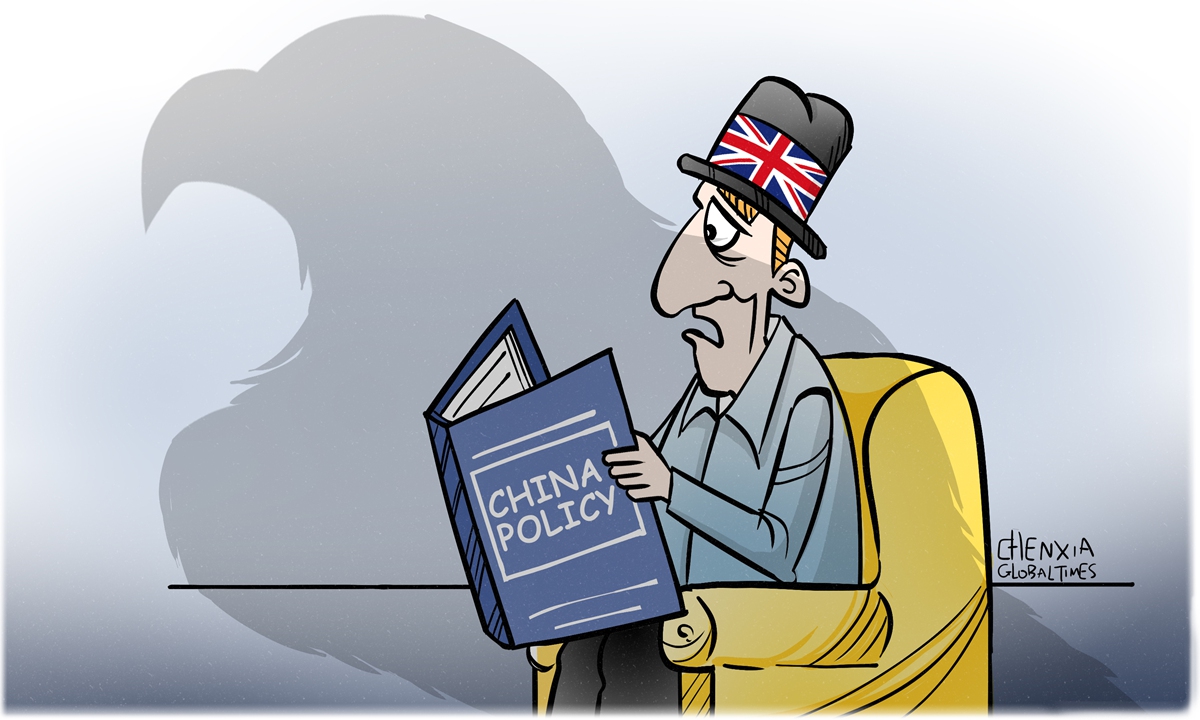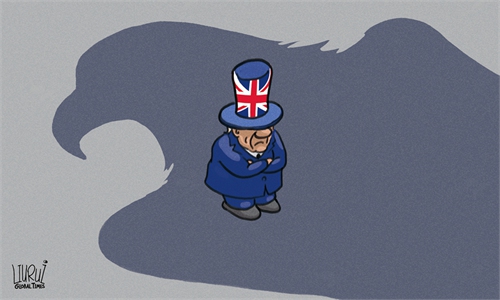
Illustration: Chen Xia/Global Times
Does the United Kingdom want to engage with China, or does it not? This should be a straightforward question, but it isn't. It is reported that soon, Foreign Secretary James Cleverly will be visiting Beijing. Similar to Anthony Blinken's visit to the country, the trip may go some way in alleviating tensions and stabilizing ties. Cleverly, to his credit, has called for "constructive" ties with China, even if he has postured on some other issues.
But that doesn't mean everything is going well. There is a serious question of who really is in control when it comes to UK-China relations, or more accurately, what exactly does the UK want? There have been several incidents recently to name. Security minister Tom Tugendhat, a well known anti-China troublemaker who was sanctioned in 2021, met a Taiwan regional representative Audrey Tang to discuss technologies. This was condemned as a violation of the one-China principle.
Previously, Rishi Sunak, attending the G7 meeting in Nagasaki which was essentially a chorus of China-bashing, proclaimed that China was the "greatest threat" to the UK in terms of economic security. Sunak has frequently turned to anti-China rhetoric in order to gain popular support. Although his actions have not always followed his words, the prime minister sees demonizing Beijing as a useful scapegoat amidst the crippling unpopularity of his government, which has been wrecked by a series of scandals pertaining to his predecessors Boris Johnson and Liz Truss.
This is only further compounded by the fact that the government faces a "fifth column" of anti-China MPs, including Truss itself, who are eager for ever greater subservience to Washington and antagonism of Beijing, despite China being a country which was once identified as one of Britain's most critical post-Brexit trading partners amidst the self-inflicted wound of trying to leave the EU. The UK economy, above all, is in a miserable rut. When this empirical reality is considered, it is neither wise nor beneficial to confront Beijing at the behest of the US.
The British government has long chased a fantasy trade deal from Washington. However, the US has never shown any serious interest in such a deal, with the inward turn to protectionism in America making it impossible to consider FTAs, even with allies. For the past three years, the US has produced a one-sided list of demands to the UK, demanding it open its markets to substandard American products, lower its regulatory standards, and of course follow US' line on China.
And despite doing that, the UK has still managed to come away empty handed. Is this the "taking back control" advocates of Brexit promised when they left the EU?
Still, the UK seemingly wants to occupy obscure middle ground where it reserves the right to antagonize China, but seemingly wants to cherry pick aspects of cooperation that might otherwise suit it. Yet, with anti-China rhetoric having gained so much political clout, it is clear the prime minister lacks the political will to engage in any serious initiative with Beijing that might be in the national interest, in fear of his own party and MPs.
If the UK wants to benefit from its relationship with China, it needs to be prepared to take serious steps, and to stop allowing Washington to exert a veto over everything it does, from Huawei, to the Newport Wafer Fab.
Britain's schizophrenic China policy, the concept of "we need you, but we can't admit it, nor we do anything about it" doesn't do the country any favors. A healthy UK-China relationship is in the best interests of both countries, and it's time for Britain to demonstrated real post-Brexit sovereignty, rather than just being on the American leash, which is only allowed to stretch so far from its master's direction.
The author is a political and historical relations analyst. opinion@globaltimes.com.cn

